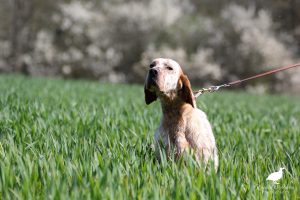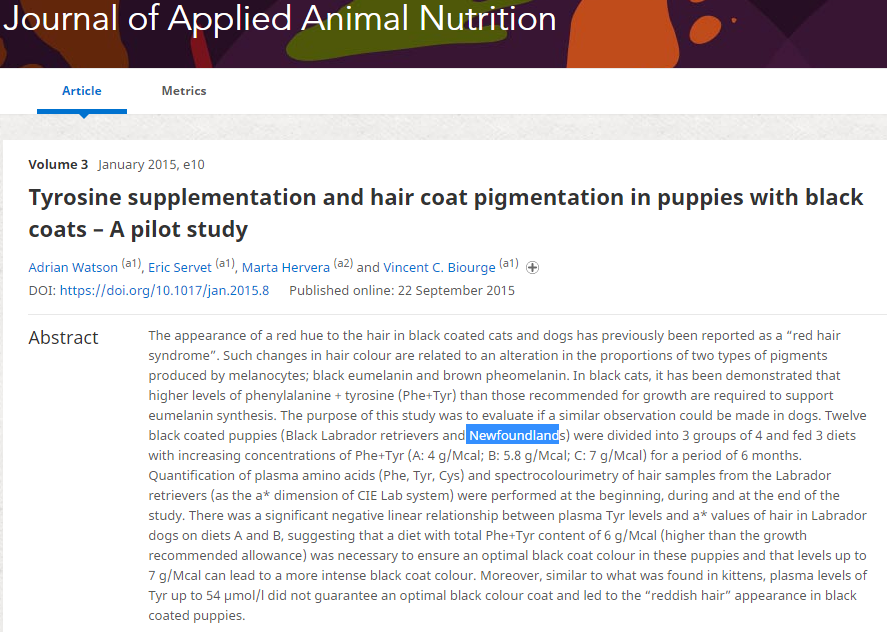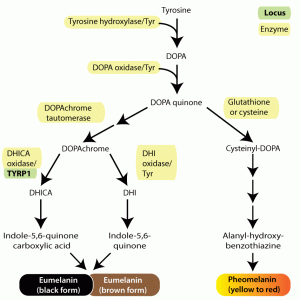Last week the server crashed after I published an article on tyrosine and dark coats. I stayed away from the admin panel for ten days because I was afraid I could crash it again, but now I am back discussing another amino acid. A couple of days ago, an English Setter owner living in the USA posted on FB about her dog’s being diagnosed with congestive heart failure. The dog had developed DCM (dilated cardiomiopathy) and the cardiologist suggested testing his taurine blood levels. She tested him and her other dogs and the tests confirmed that some of them had indeed very low levels of taurine. Curiously, those with lower levels were fed a grain free, high protein, trendy dog food while the other ones, eating what would be considered an “average” dog food, were doing better.
Taurine has multiple functions, as you can read here, but can taurine deficiency in the diet lead to DCM? We know this can happen in cats: taurine is, for cats, an essential amino acid which means they cannot synthesize it and that it must be introduced with the diet. When it comes to dogs, instead, taurine is not considered essential as they can produce it by themselves. But… to do so, they need to convert dietary sulfur amino acids (SAA, methionine and cysteine) to taurine.
I decided to speak again with Lucia Casini, Veterinary Nutrition Professor at the University of Pisa, and she confirmed what I just wrote above, adding that a lack of methionine and cysteine could, however, cause taurine deficiency. So, are some dog foods lacking of methionine and cysteine? Maybe, or it could also be that some animals are less efficient when it comes to transforming them into taurine. There are several breeds of dogs that have a lower than normal ability to convert SAA: American Cocker Spaniels, Cocker Spaniels, Golden Retrievers, Labrador Retrievers, St Bernard, English Setters and Newfoundlands (and probably more we still do not know about). In their cases, taurine supplementation could have a preventive, rather than curative role.
So… What should we do? I think further research is needed but, personally, owning an English Setter, I am investigating on laboratories which can assess taurine levels and trying to collect information about the cost of this service. Would I advise you to do the same? Probably, and I am also wondering if other breeds, especially those related to the aforementioned breeds and those prone to DCM, should be tested: more research is certainly needed!
Update: in Europe at least 3 labs test for taurine in dogs: Idexx, Laboklin and San Marco. Prices are around 40-50 euros. Update on my test here.
Considering that most of my readers own working dogs (read about the Gundog Research Project!), let me also add that these athletes might need more taurine than the average dog. The web is full of articles on taurine and DCM in dogs, go and read them if you want to know more, I am just here to spread the word and raise some awareness.

 The study, as you can read in the abstract, suggests that dogs with darker coats need twice the amount of tyrosine the average dogs needs – according to the NRC guidelines. Furthermore, the longer the coat, the higher the requirements for tyrosine. She also explained that the role of tyrosine and coat colour has been studied more in cats, but added that some commercial foods, especially those poor in proteins of animal origins, do not contain enough tyrosine for black dogs. Phenylalanine seems to play a role too and they are both essential aminoacids, hence they must be introduced through the diet.
The study, as you can read in the abstract, suggests that dogs with darker coats need twice the amount of tyrosine the average dogs needs – according to the NRC guidelines. Furthermore, the longer the coat, the higher the requirements for tyrosine. She also explained that the role of tyrosine and coat colour has been studied more in cats, but added that some commercial foods, especially those poor in proteins of animal origins, do not contain enough tyrosine for black dogs. Phenylalanine seems to play a role too and they are both essential aminoacids, hence they must be introduced through the diet.